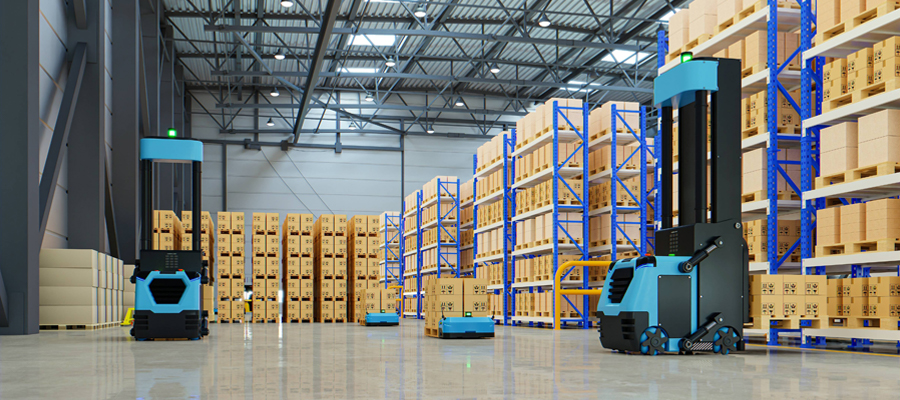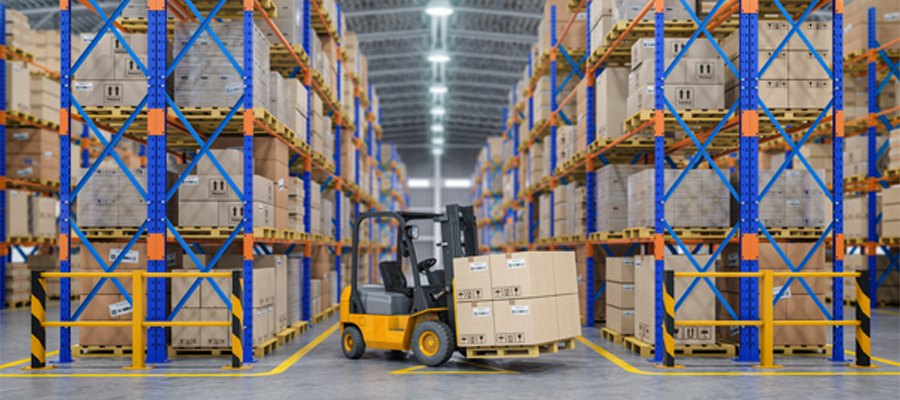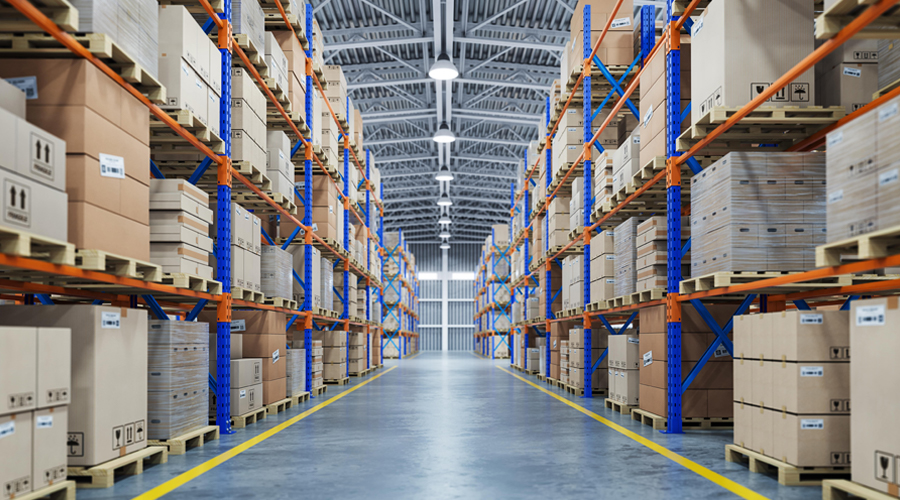While many view warehousing merely as a space to store products, its role is much more significant. Though their primary job is to store, they play a much bigger role. They are the essential link between factories and your doorstep, ensuring that the items you love are delivered on time. Whether it’s small businesses or massive corporations, warehouses are what keep the flow of goods moving smoothly. In this post, we’ll explore the different types of warehouses, and the benefits of warehousing, and answer some common questions about data warehousing, smart warehouses, and even automotive warehousing.
What Is Warehousing & Why It Matters?
Imagine your warehouse as a well-organized closet! It keeps your products safe and tidy until they’re ready to enter the world. From small shops to big online stores, warehouses are essential for holding onto your products until they’re needed. They offer ample space, are strategically located, utilize the latest technology, and provide excellent customer service. The best warehouse for you depends on what your business needs.
Here’s a breakdown of what warehousing services typically offer:
- Storage: Providing secure and organized storage space for your inventory.
- Inventory Management: Tracking and managing your stock levels to ensure you have enough products on hand.
- Order Fulfillment: Receiving, processing, and shipping orders efficiently.
- Transportation: Arranging transportation for your goods, from receiving them to delivering them to customers.
- Value-Added Services: Offering additional services like packaging, labeling, and assembly.
Types Of Warehouses

Now that we’ve proven the value of warehousing, let’s look more closely at the many accessible types. Each kind serves different business purposes, so determining which one is ideal for your operations is crucial. The four main types are:
Public Warehouses
As the name implies, public warehouses are offered for rent by enterprises. These facilities offer flexible storage choices for businesses that may not require a full-time warehouse but yet want dependable space to keep items. Public warehouses are a common solution for firms that experience seasonal demand or variable inventory.
Private Warehouses
A private warehouse is the best option for large businesses with ongoing inventory requirements. You have more control over operations since your company owns and runs private warehouses. Greater flexibility and improved operational control are two advantages of managing these facilities, despite the increased operating expenses.
Distribution Center
Distribution centers are ideal for companies where speed is essential. These facilities get things in and out rapidly, making them perfect for businesses with a high order fulfillment rate, like internet retailers. Quick turnaround times are ensured by the effective handling of large volumes of commodities by distribution facilities.
Specialty Warehouses
Some items need certain storage circumstances. Specialty warehouses are built to handle certain products; for example, they can hold hazardous chemicals or provide cold storage for perishable food. Specialty warehouses are ideal if your company handles goods that need specific storage conditions.
If you’re looking for specialized solutions, check out our warehousing services to see how we can tailor storage options to your business needs.
Benefits of Warehousing and Storage Facilities

Let’s take a closer look at the benefits of warehousing and how it plays a critical role in business operations. Warehousing is fundamental for any firm aiming to operate smoothly and effectively. Inventory management can become chaotic without adequate storage, leading to delays, shortages, and dissatisfied customers. This explains why storage is so important.
Inventory Management
Effective inventory management is the primary advantage of warehousing. You can keep track of your inventory in real-time with a warehouse, so you’ll always know precisely what you have on hand. This reduces the worry of running out of trending items and avoids having excessive unsold inventory on hand.
Better Dispersal
You may ensure that goods are ready for shipping as soon as they are needed by keeping a warehouse close to your clients. It greatly reduces shipping delays and transportation expenses, resulting in quicker delivery and happier clients.
Cost Efficiency
Businesses can save logistical expenses like labor and transportation by centrally storing their items. Furthermore, warehouses allow businesses to make bulk purchases, resulting in cost savings.
Flexibility
You can adjust your stock levels to suit shifting market demands with the flexibility offered by warehousing. A warehouse provides you with the room and flexibility to swiftly adjust, whether you need to scale down during sluggish times or scale up during peak seasons.
Key Benefits of Warehousing for Businesses

Now that you know how important warehousing is for business owners, specifically those who need extra space to store goods. It’s time to move ahead and find some benefits!
Better Inventory Control
An effective warehousing system allows firms to track all products in real time. Keeping your warehouse organized can save you the difficulty of finding out what products you have. Operations will run more smoothly overall since you’ll always know when to cease ordering or refilling particular items.
Savings On Costs
Effective handling procedures and space optimization can reduce considerable cost reductions through proper warehouse techniques. By streamlining processes and reducing manual labor, businesses can maintain lower costs and improve organization.
Enhanced Customer Experience
Customers today need a delivery that is dependable and timely. Businesses may transport goods more quickly and accurately by strategically positioning warehouses close to important markets. This will satisfy consumers and encourage repeat business.
Reliability In Scale
Your demands for storage will increase as your firm expands. You may increase your business with warehousing without suffering significant interruptions. Remote storage gives you the adaptability required to fulfill rising demand, regardless of whether your business is experiencing long-term expansion or seasonal variations.
Leveraging Technology
Businesses are handling inventories in a completely new way because of automation and technologies like Warehouse Management Systems (WMS). These innovations ensure that goods are chosen, packaged, and delivered as soon as feasible, increase productivity, and lower manual mistake rates.
Choosing The Right Warehousing Solution

There’s more to choosing the ideal storage solution than ensuring your items have adequate room. You must consider several variables to ensure your warehouse aligns with your business goals. The following are important things to remember:
Capacity Of Storage
As your company expands, ensure that the warehouse has sufficient capacity to hold your current and future inventory. Seek out a facility that can be scaled up or down to accommodate your changing needs for space.
Location
The warehouse’s location is another important consideration. Transportation expenses and times significantly decrease with a warehouse placed strategically. Keeping goods close to your main suppliers and clients ensures efficient and economical delivery.
Technology Integration
The operations run more smoothly with warehouses that use contemporary technology, such as automation tools and inventory management systems. Be assured the warehouse you choose has these qualities to optimize your company processes.
Levels Of Service
Various firms have distinct demands regarding storage services. Double-check that the warehouse has the required service levels, including just-in-time delivery, specialized storage for fragile items, and extra services like labeling and packing.
Conclusion
Warehouses are more than simply places to store things; they are the foundation of an efficient and successful supply chain. The benefits of warehousing extend beyond storage; Choosing the ideal warehouse solution improves customer satisfaction, reduces costs, and simplifies operations for organizations of any size. You can position your business for long-term success by knowing the types of warehouses and selecting the ideal one for your requirements. As part of your supply chain strategy, efficient storage methods offer you a competitive edge and maximize your operations. For a reliable warehouse partner that can help improve your logistics and customer satisfaction, explore our warehousing services.
FAQs
What is smart warehousing?
Large buildings housing manufactured goods and raw materials that employ computers and robots to carry out routine warehouse tasks are smart warehouses. Previously, these tasks were performed by humans.
What are the typical warehousing jobs?
Forklift operators, warehouse managers, supervisors, inventory experts, and logistics coordinators are common positions or services in the warehouse industry. Every position is critical to the seamless operation of the warehouse.
What is data warehousing?
A data warehouse is an enterprise system that analyzes and reports structured and semi-structured data from various sources, including marketing automation, customer relationship management, and point-of-sale transactions.
What is an auto warehousing company?
AWC handles a wide range of logistical tasks. Real-time yard management, real-time data transfers, dealer delivery, import/export planning, rail car changeover and preparation, loading and unloading, and significant assembly plant operations are a few examples.





